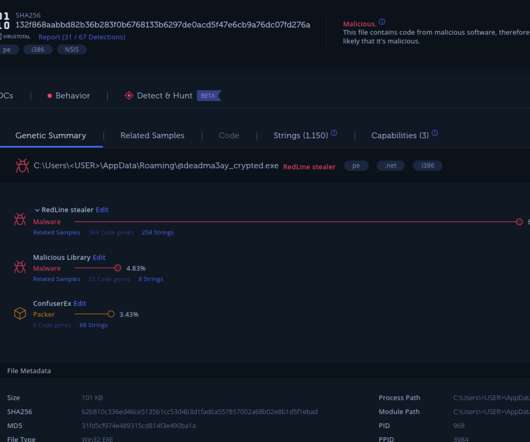CVE-2018-15919 username enumeration flaw affects OpenSSH Versions Since 2011
Security Affairs
AUGUST 29, 2018
Qualys experts discovered that OpenSSH is still vulnerable to Oracle attack, it is affected by the CVE-2018-15919 flaw at least since September 2011. Security experts from Qualys discovered that OpenSSH is still vulnerable to Oracle attack, it is affected by the CVE-2018-15919 flaw at least since September 2011.













Let's personalize your content